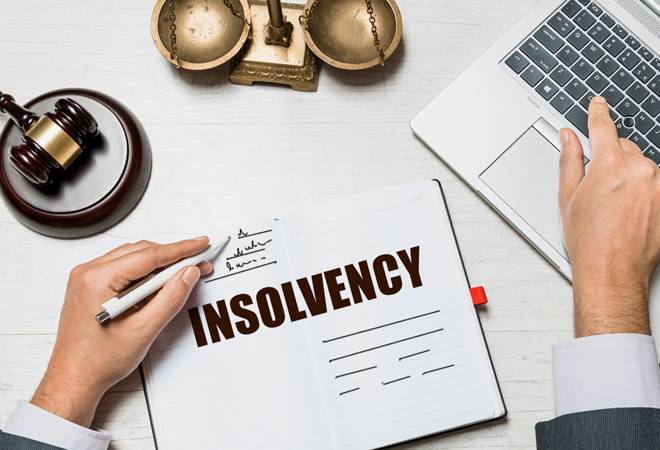Little Known Facts About Insolvency Practitioner.
Little Known Facts About Insolvency Practitioner.
Blog Article
The Best Guide To Insolvency Practitioner
Table of ContentsInsolvency Practitioner for BeginnersThe Buzz on Insolvency PractitionerNot known Details About Insolvency Practitioner What Does Insolvency Practitioner Do?The Single Strategy To Use For Insolvency PractitionerSome Known Factual Statements About Insolvency Practitioner An Unbiased View of Insolvency Practitioner
Bankruptcy is when responsibilities are higher than the worth of the business, or when a borrower can not pay the financial obligations they owe. A company can become financially troubled because of a number of situations that bring about bad capital. When confronted with insolvency, a business or individual can contact financial institutions straight and restructure financial obligations to pay them off.Service owners might contact creditors directly and restructure debts right into more convenient installations. Creditors are commonly open to this technique because they desire to be paid back and prevent losses, also if the settlement is on a postponed schedule.
Little Known Facts About Insolvency Practitioner.
The owner develops a proposal outlining how the financial obligation might be restructured using expense decreases or various other prepare for support. The proposal reveals financial institutions just how the company might create enough capital for lucrative procedures while paying its financial obligations. Commonly, a forgiven debt may be considered earnings by the Irs (INTERNAL REVENUE SERVICE).

The 4-Minute Rule for Insolvency Practitioner
When operations discontinue, so does the firm's income (Insolvency Practitioner). Some firms end up being financially troubled because their goods or solutions don't advance to fit consumers' altering demands.
Costs exceed profits and expenses continue to be overdue. Cash-flow insolvency occurs when a company has the possessions to cover their financial debts however they are in the wrong form, such as actual estate instead of fluid funds. Balance-sheet bankruptcy, on the other hand, suggests a lack of possessions in any kind of form to cover debts.
The internal revenue service states that an individual is financially troubled when the complete responsibilities surpass complete properties. A personal bankruptcy, on the various other hand, is a real court order that depicts exactly how a bankrupt person or service will certainly pay off their creditors, or exactly how they will market their assets in order to make the payments.
Insolvency Practitioner for Dummies

Financial obligation debt consolidation is when you incorporate multiple financings into one brand-new financing, typically to attain far better terms. Bankruptcy is not the very same as bankruptcy, although a company that has ended up being financially troubled might declare personal bankruptcy. Bankruptcy is the state of not having the ability to pay your obligations while bankruptcy is a lawful procedure to discharge your financial obligations.
Recognizing the aspects that can result in insolvency, such as overspending, can help you prevent insolvency and its consequences.
Insolvency Practitioner Can Be Fun For Anyone
It is well known that supervisors and police officers of firms (and managers of restricted liability companies) owe fiduciary responsibilities to their organizations and their investors (or members). These fiduciary responsibilities are defined by state laws and, though there are variants from one state to another, they typically consist of a task of commitment and an obligation of care.
The duty of care requires directors and officers to exercise persistance, to make informed choices, and to act in good faith to make sure that their actions remain in the finest passion of the company. Beyond the range of this conversation, some states allow these duties to be restricted either by so keeping in mind in the anonymous organizational files or abiding with other needs.
Our Insolvency Practitioner Statements
Most states define bankruptcy in 2 methods( 1) when a business's obligations become greater than the sum of its assets or (2) when the company ends up being incapable to pay its debts as they end up being dueand embrace both interpretations (Insolvency Practitioner). The change in obligations occurs since when a firm is financially troubled, there is no value in the company beyond that owed to the company's creditors to ensure that the equity holders no more have an economic stake in the business
Take care concerning giving investors favoritism at the expenditure of financial institutions (e.g., authorizing and moneying a returns or a stock redemption). Take care about favoritism between courses of shareholders. Make reasonable initiatives to learn all the realities prior to taking a details strategy; directors must genuinely think that any kind of decisions made are in the very best rate of interests of the company in its entirety (i.e., choices will be evaluated in knowledge taking into account the impact of such actions on the corporation).
In any kind of insolvency or bankruptcy proceeding, settlements made to certain creditors at the expenditure of various other financial institutions can be clawed back, especially if there is some link in between the firm and the lender. Consider recommending at an annual investor meeting (or any other meeting of stockholders) a resolution affirming that all prior organization choices and actions taken by the directors and policemans of the firm from this source were taken in good faith after an exercise of sensible treatment.
What Does Insolvency Practitioner Mean?
Fully divulge any kind of individual or organization relationships with celebrations beyond of purchases including the corporation to avoid the appearance of a problem of passion. In reviewing possible fund elevating transactions or a sale of assets of the struggling firm, realize that these transactions may be inspected later on in light of any subsequent development of supervisors' fiduciary duties to consist of financial institutions.
Report this page